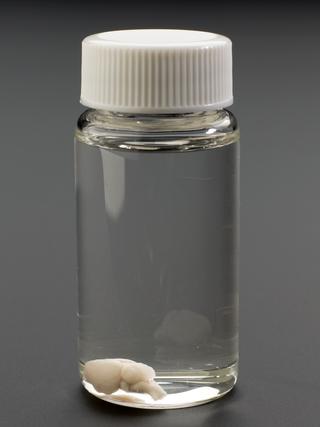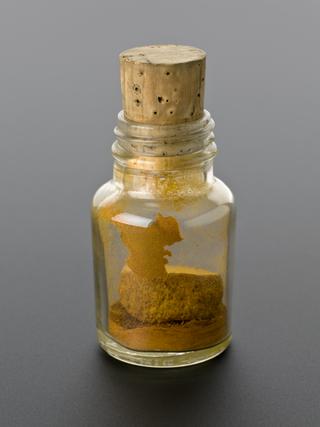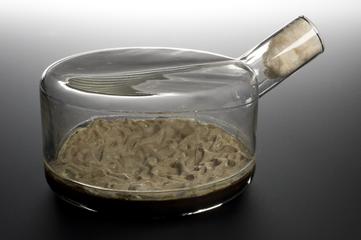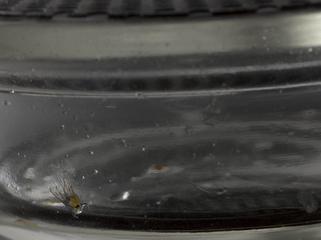
SnP Dr prototype
















SnP Dr prototype, a handheld device with an insertable cartridge, made by Prof. Chris Toumazou, DNA Electronics Ltd., and Imperial College, London, England, 2005-2010
Invented by Professor Christofer Toumazou, SNP (pronounced snip) Dr was a prototype to predict how someone might respond to a medication. Silicon chip technology is used to identify genetic differences found in DNA called Single Nucleotide Polymorphisms (SNPs). Saliva samples are placed in a disposable cartridge. A chip reads the sample, matching SNPs on its database. Within 30 minutes, the results would appear on screen. Originally, SnP Dr was aimed at helping GPs tailor dosages and medications in their clinics, rather than relying on laboratory testing or waiting for adverse reactions. Reactions to medications have a huge impact to people and to the National Health Service. Professor Toumazou founded a company called DNA Electronic spun out from Imperial College to develop the device.
By 2014, the device was adapted to identify genetic mutations that determine a person’s predisposition to certain hereditary disease. It was hoped that this could make DNA testing more economical for clinics and hospitals, at a time when DNA sequencing machines cost half a million US dollars. SNP technology sits at the heart of DNA Nudge, a shoebox-sized portable laboratory offering on-the-spot genetic testing developed by Toumazou and his company. Launched in 2019, data is used to ‘nudge’ consumers towards healthier choices while food shopping, but was also swiftly adapted to provide rapid, lab-free COVID-19 testing.
Details
- Category:
- Biotechnology
- Object Number:
- 2021-1598
- Materials:
- plastic (unidentified) and metal (unknown)
- Measurements:
-
overall: 110 mm x 80 mm x 200 mm,
- type:
- dna analyser
- credit:
- Chris Toumazou, DNA Electronics Ltd




